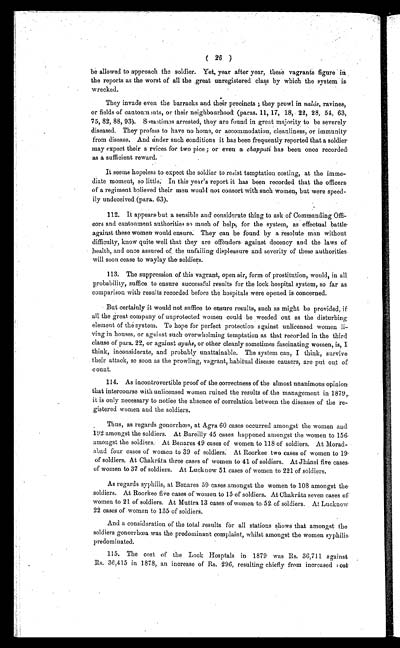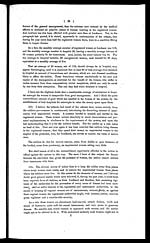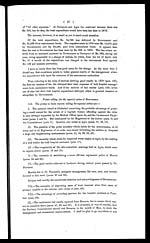Medicine - Institutions > Lock hospitals > Annual report on the working of the lock hospitals in the North-Western Provinces and Oudh > Sixth annual report of the working of the lock hospitals in the North-Western Provinces and Oudh, for the year 1879
(216) Page 26
Download files
Individual page:
Thumbnail gallery: Grid view | List view

( 26 )
be allowed to approach the soldier. Yet, year after year, these vagrants figure in
the reports as the worst of all the great unregistered class by which the system is
wrecked.
They invade even the barracks and their precincts ; they prowl in
nalás, ravines,
or fields of cantonments, or their neighbourhood (paras. 11, 17,18, 22, 28, 51, 63,
75, 82, 88, 93). Sometimes arrested, they are found in great majority to be severely
diseased. They profess to have no home, or accommodation, cleanliness, or immunity
from disease. And tinder such conditions it has been frequently reported that a soldier
may expect their services for two pice ; or even a chappati has been once recorded
as a sufficient reward.
It seems hopeless to expect the soldier to resist temptation costing, at the imme-
diate moment, so little. In this year's report it has -been recorded that the officers,
of a regiment believed their men would not consort with such women, but were speed-
ily undeceived (para. 63).
112. It appears but a sensible and considerate thing to ask of Commanding Offi-
cers and cantonment authorities so much of help, for the system, as effectual battle
against these women would ensure. They can be found by a resolute man without
difficulty, know quite well that they are offenders against decency and the laws of
health, and once assured of. the unfailing displeasure and severity of these authorities
will soon cease to waylay the soldiers.
113. The suppression of this vagrant, open air, form of prostitution, would, in all
probability, suffice to ensure successful results for the lock hospital system,. so far as-
comparison with results recorded before the hospitals were opened is concerned.
But certainly it would not suffice to ensure results, such as might be provided,
if
all the great company of unprotected women could be weeded out as the disturbing
element of the system.. To hope for perfect protection against unlicensed women li-
ving in houses, or against such overwhelming temptation as that recorded in the third
clause of para. 22, or against ayahs, or other cleanly sometimes fascinating women, is, I
think, inconsiderate, and probably unattainable. The system can, I think, survive
their attack, so soon as the prowling, vagrant, habitual disease causers, are put out of
count.
114. As incontrovertible proof of the correctness of the almost unanimous opinion
that intercourse with unlicensed women ruined the results of the management in 1879,
it is only necessary to notice the absence of correlation between the diseases of the re-
gistered women and the soldiers.
Thus, as regards gonorrhœa, at Agra 60 cases occurred amongst the women and
192 amongst the soldiers. At Bareilly 45 cases happened amongst the women to 156
amongst the soldiers. At Benares 49 cases of women to 118 of soldiers. At Morad-
abad four cases of women to 39 of soldiers. At Roorkee two cases of women to 19
of soldiers. At Chakráta three cases of women to 4I of soldiers.. At Jhánsi five cases
of women to 37 of soldiers. At Lucknow 51 cases of women to 221 of soldiers.
As regards syphilis, at Benares 59 cases amongst the women to 108 amongst the
soldiers. At Roorkee five cases of women to 15 of soldiers. At Chakráta seven cases of
women to 21 of soldiers. At Muttra 13 cases of women to 52 of soldiers. At Lucknow
22 cases of women to 135 of soldiers.
And a consideration of the total results for all stations shows that amongst the
soldiers gonorrhœa was the predominant complaint, whilst amongst the women
syphilis
predominated.
115. The cost of the Lock Hosptals in 1879 was Rs. 36,711 against
Rs. 36,415 in 1878, an increase of Rs. 296, resulting chiefly from increased cost
Set display mode to: Large image | Zoom image | Transcription
Images and transcriptions on this page, including medium image downloads, may be used under the Creative Commons Attribution 4.0 International Licence unless otherwise stated. ![]()
| Permanent URL | https://digital.nls.uk/75111480 |
|---|




